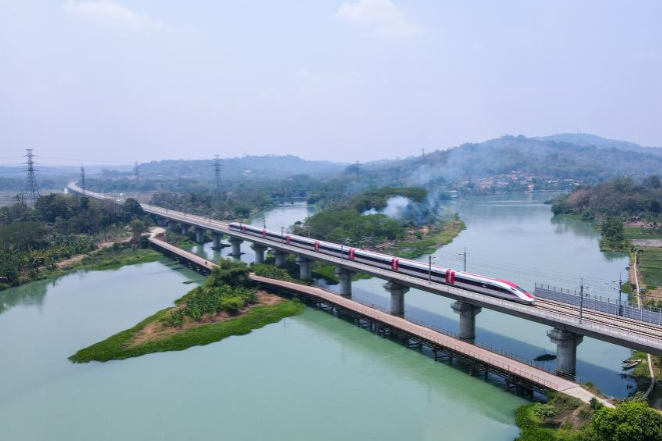Analyst hails global benefit of 'Chinese renaissance'

Sinologist and international relations expert David Gosset said that this year marks the acceleration of China's return to a position of centrality through a process of renaissance.
At the latest Vision China event, which was held as a part of the 10th Lanzhou Yellow River Cultural Tourism Festival on Friday, the French scholar and founder of the Europe-China Forum shared his definition of the Chinese renaissance.
He said that 2020 is an unforgettable year because of the COVID-19 pandemic. Some foreign media and thinkers predicted China's collapse when the virus hit the country in February.
"In my opinion, this pandemic and its effects create a world in which we see not only a Chinese renaissance but also an acceleration of China's return to a position of centrality," said Gosset.
The Chinese renaissance is an ongoing process and one which, at the end of the day, is going to change our world, he added.
The first point he used to define the renaissance is China's economic strength.
He mentioned the country's great achievements in poverty alleviation over the past four decades, noting that China accounted for 1.7 percent of the global economy in 1978 and accounts for 16 percent today.
"And despite the tough beginning of the year, China is going to grow in 2020, while most of the countries in the world will not grow at all," he said.
The global affairs analyst pointed out that the "secret weapon" of China's economy is its "1.4 billion consumers".
He said tourists are also a kind of consumer, and Lanzhou city and Gansu province tap this segment very well.
"Millions of Chinese come to Lanzhou, Tianshui and Dunhuang. The economy here is going to grow," he said, emphasizing the importance of China's plan to boost domestic consumption.
He noted that the Chinese renaissance is about social transformation, which translates as the country's political modernity. And that means China will enrich the vocabularies of Western political scientists.
The renaissance is also about the country's cultural and intellectual metamorphoses. In this sense, Chinese intellectuals need to reinterpret classical Chinese tradition, he said.
Gosset also highlighted China's opening-up's positive effects on its renaissance.
China is projecting itself globally for people, technology, goods, finance, military and diplomacy, he said.
Another point he used to define the Chinese renaissance is the country's conception of an ecological civilization.
He said such ideas, like those presented by President Xi Jinping and China's vision of building a community with a shared future for mankind, cannot only be applied in China but also in other countries. This shows that China has become a source of ideas for the 21st century, he added.
"And these ideas, I believe, are an effect of the Chinese renaissance," he said.
He shared his vision for China's future development.
"In the following years, the creative industry, tourism and arts sectors will become increasingly important. The Chinese renaissance will make the 1.4 billion Chinese people very proud," he said.
"I've found many Chinese people are traveling to Lanzhou. I hope that people from all around the world can also visit the city, through which the Yellow River flows, to see how precious Chinese civilization is."

































